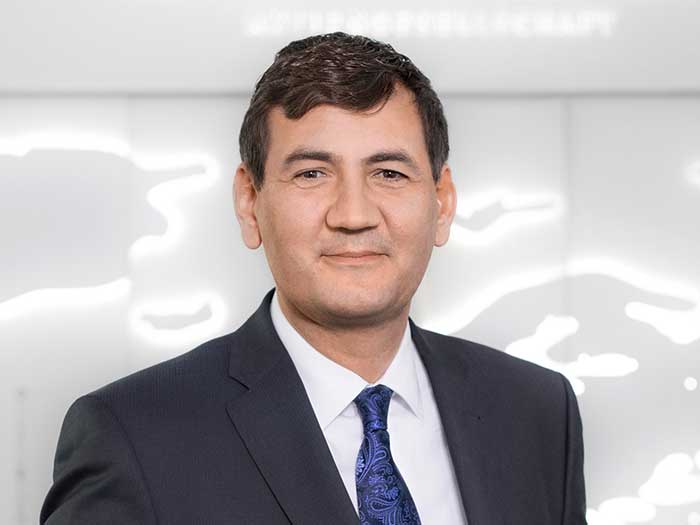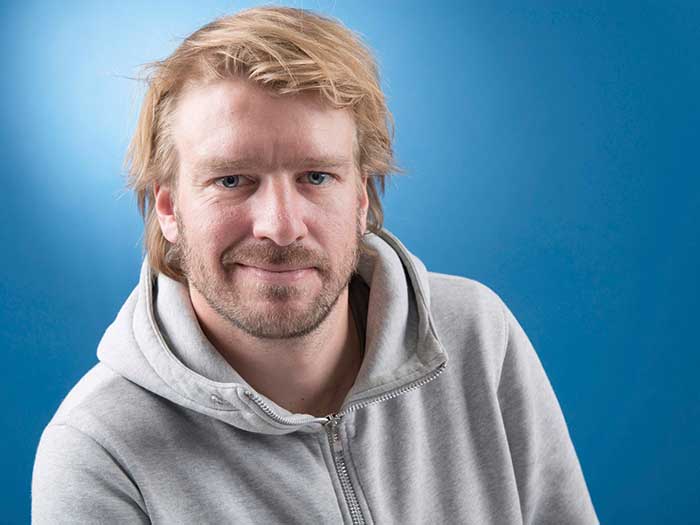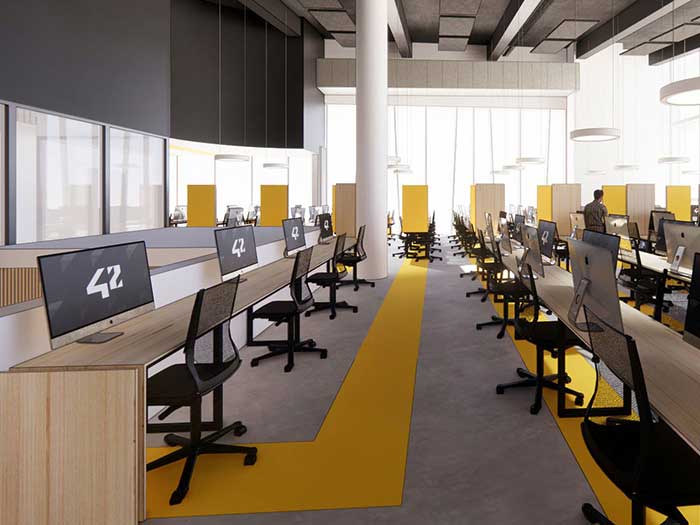42 Wolfsburg: the campus for software developers
Volkswagen is supporting a second software programming school – the 42 Wolfsburg campus. Lessons will start in May, based on a method that promotes self-determined learning.

Mobility is undergoing rapid transformation, with cars becoming more and more digital and connected – which is why Volkswagen is increasingly becoming a software company. The German Group’s goal is to develop in-house a large proportion of the software in its vehicles. Currently, in-house development accounts for less than ten percent. However, the aimi is to hit 60 percent by 2025, thanks to an increasing presence of highly trained specialists. Some of these will come from 42 Wolfsburg, the second programming school supported by Volkswagen.
The 42 Wolfsburg program complements Faculty 73, which trains basic software developers within two years and ends with a German Chamber of Industry and Commerce degree. The goals and learning approaches are different: instead, 42 Wolfsburg aims to teach the skills of a junior developer in around 18 months. Those who decide to continue their studies “will acquire the skills of a specialized software engineer at a master’s level in one to three more years,” explains Gunnar Kilian, Chief Human Resources at Volkswagen Group.
Self-determined learning
The 42 Wolfsburg method is based on self-determined learning, a way of learning individually and through interaction with fellow students. Students do not acquire academic knowledge on the course. Instead, they undergo constant practical training to develop their programming expertise, working on increasingly difficult projects.
“We believe that know-how cannot be ‘transmitted’ in lectures – but that you have to acquire it practically yourself,” says Max Senges, Managing Director of 42 Wolfsburg. “With the internet, students also have the world’s largest knowledge resource at their disposal. At the end, graduates will have software competencies comparable to a bachelor’s or master’s degree in computer science.”
École 42

The training program is based on the École 42 concept, which has been “exported” to 33 locations worldwide and does not issue degree certificates because it promotes competencies. It has been continuously improved over the years, and has helped students find exciting jobs in large corporations in the telecoms industry, the IT departments of firms in other sectors, or as self-employed professionals.
“This is not only due to their good technical knowledge, but to promoting teamwork and a sense of responsibility. Graduates of the program are known for solving problems independently,” adds Senges.
A magnet for activities
At the school, the kitchen and rest rooms are always open – that’s because student life is important too. In addition to the learning environment, the campus features a number of common rooms where students can spend time with their peers, discuss, play board games or read books.
The campus is accessible 24/7, so students are free to decide how to organise their day. It is also possible to complete the course 100 percent online, but the “spaceship” – the Markthalle in Wolfsburg – remains an important magnet for activities such as hardware workshops, team building, and other training events.
Selection
“A high level of motivation is the most important quality for candidates, followed by the ability to work independently. I like to compare this with learning a language: you can either start by cramming vocabulary and grammar. Or go abroad and practice in everyday life,” Senges continues. Studying at 42 Wolfsburg is like going abroad – this is also reflected in the selection process, where priority is given to those who are comfortable with independent learning.
Due to Covid-19, the admission tests take place entirely online, with face-to-face interviews not possible for the moment. In-person courses should start from May with the first 150 students, but during the pandemic extensive use will be made of digital learning. “Interest is considerable and we can’t wait for the bootcamps to start in spring and late summer,” says Senges.
The projects

The first projects students work on deal with simple tasks such as basic programming – “Hello World” for example (in other words, programming a piece of writing to appear on a screen). Later, students can specialize in 13 areas such as machine learning, distributed applications, IT security, Open Internet or 3D visualisation.
Tens of thousands of software developers are in demand worldwide, but Wolfsburg offers a specialisation for the automotive sector. Students therefore learn to write software for vehicles, mobility solutions or ecosystems. To develop and pilot the learning projects in this area, there is also a fellowship program involving experts from academia and business – including, of course, from Volkswagen Group.
Working with Volkswagen
Volkswagen supports the programming school by offering internships and through the association “42 Wolfsburg e. V.”. In the first year, the school will receive 3.7 million Euros, followed by two million Euros annually, which will ensure it can operate on a non-profit and tuition-free basis.
Students spend a considerable part of the training program in assignments at partner companies. During these practical phases, they are assigned experienced software developers as mentors who provide them with constant support. “But the most important thing about this method is that students learn to learn – and will thus find it normal throughout their lives to master new things,“ explains Senges.
The importance of software
“Software competence is essential for a company like Volkswagen Group. After all, software is becoming the brain of the car. That’s why we have created the Car.Software organisation, where thousands of IT specialists will work,” Kilian continues. The Group will double its investment in digitalisation over the next five years to 27 billion euros. The money will flow into the Car.Software organisation and into the development of artificial intelligence and autonomous driving.
“The biggest challenge, however, will be to meet the high demand for education and training in terms of digital skills and thus enable our workforce to play an active role in shaping the transformation,” Kilian concludes.
Source: Volkswagen Newsroom
